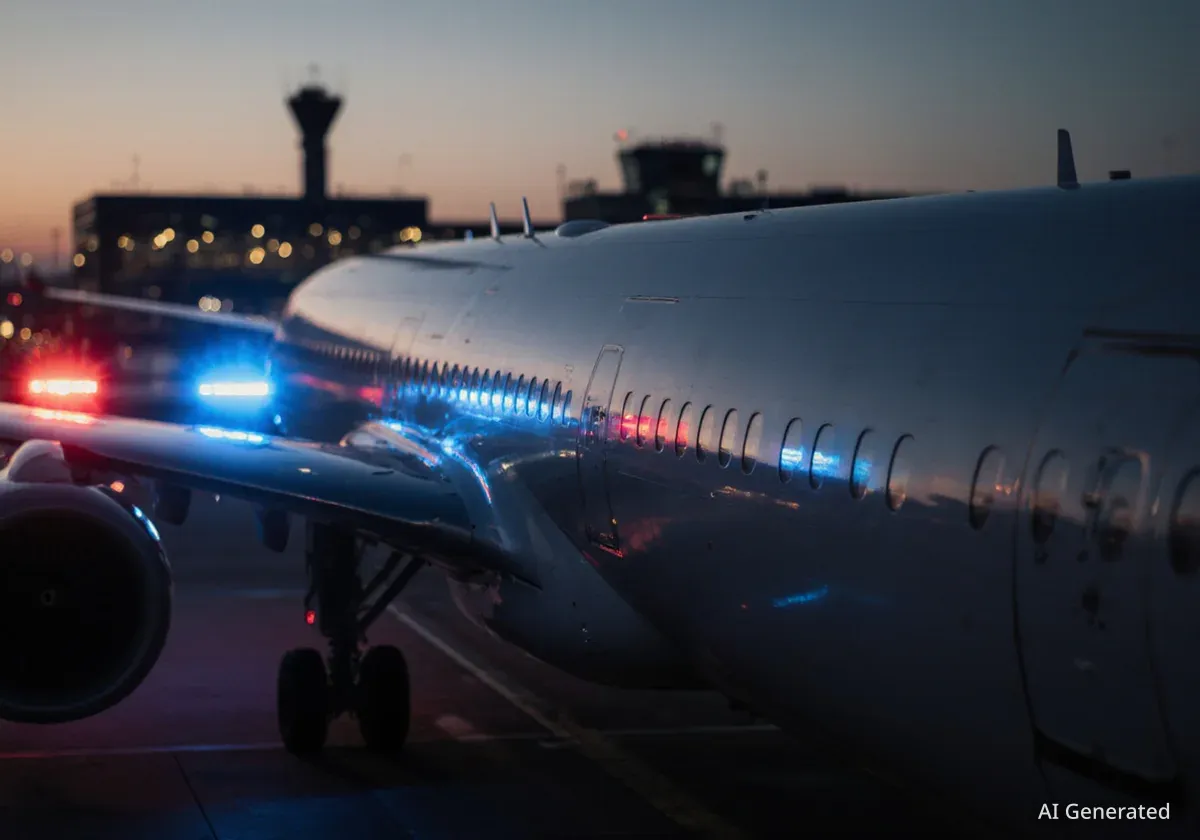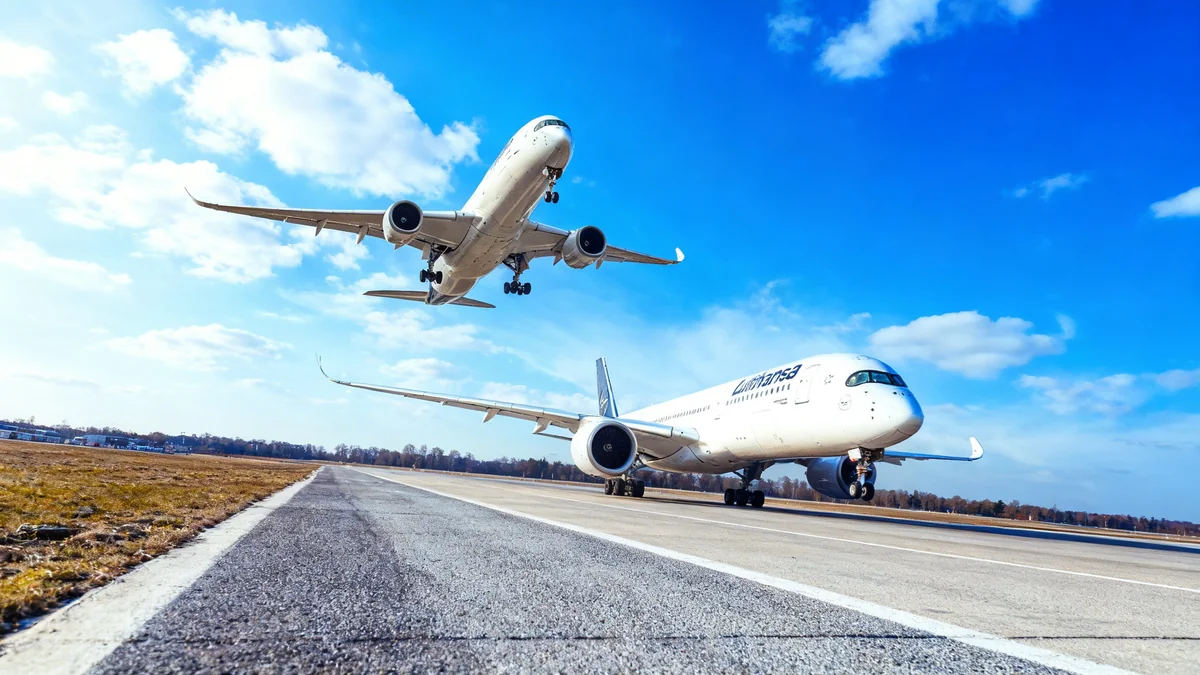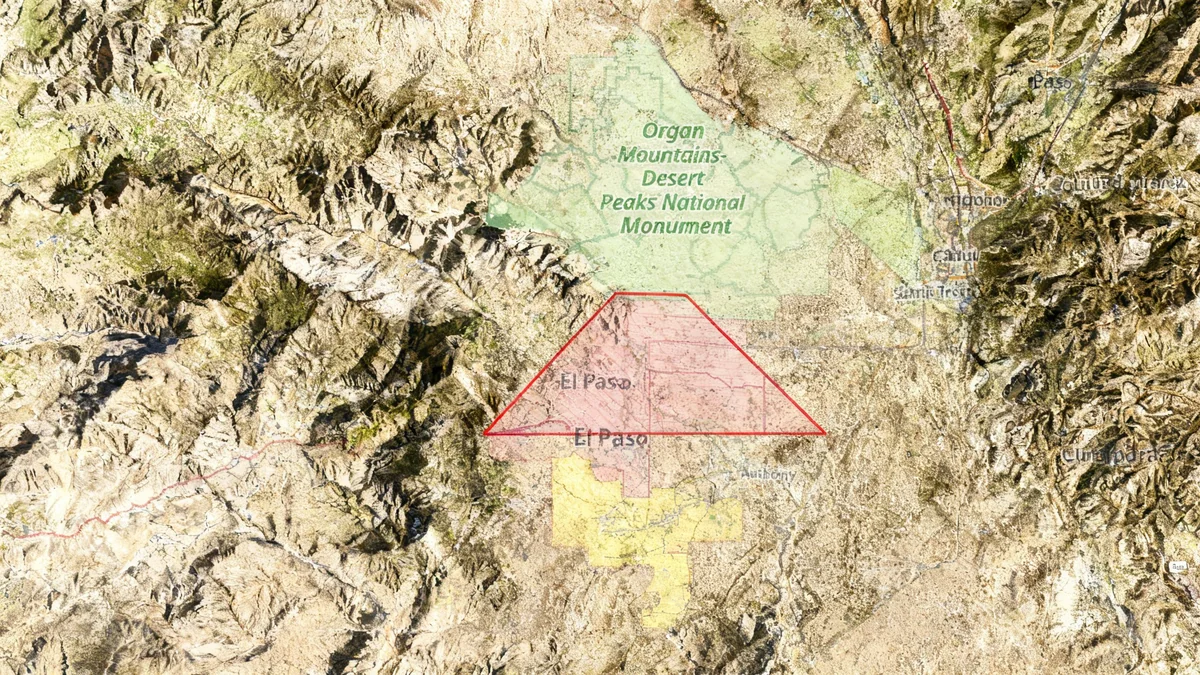Grand Forks International Airport (GFK) is at the center of a major effort to increase flight options and reduce airfares. Local business and city leaders are pushing for expanded air service, hoping to reverse a significant drop in passenger boardings and boost regional economic growth. The initiative aims to make Grand Forks a more accessible destination for business and leisure travelers.
Key Takeaways
- Grand Forks seeks to expand flight options and lower airfares at GFK.
- Passenger boardings at GFK have dropped by 39% since 2014.
- The city secured a $1 million federal grant to attract new carriers.
- Businesses report current limited flights hinder operations and growth.
- Goals include more flights to Minneapolis and new routes to Denver.
The Economic Impact of Limited Air Travel
Limited air service at Grand Forks International Airport is a significant concern for the local business community. Many companies find their employees and clients often fly into Fargo's Hector International Airport (FAR) instead. This routing means lost economic opportunities for Grand Forks.
Kyle Kvamme, Director of Project Development at Icon Architects, highlights this issue. He notes that clients flying into Fargo rent cars and buy meals there, diverting potential revenue from Grand Forks. "All [potential economic impact for Grand Forks] is wasted," Kvamme states.
Boarding Statistics
- GFK boardings in 2022: 89,410
- Percentage decrease at GFK since 2014: 39%
- Fargo's Hector International boardings in 2022: 455,215
- Percentage increase at Fargo since 2014: 1.4%
Business Leaders Speak Out
Local businesses emphasize the critical need for better air connections. Chris Wolf, Grand Forks market president for Alerus, highlighted the challenge. Alerus has offices in Denver and Phoenix, and convenient travel is essential for their team members and clients.
"Convenient air travel is essential for our executives and team members when they need to travel to and from these markets. While we value and appreciate the existing service at GFK, it is limited and does not provide convenient options for travel to and from Denver and the western part of the country."
Wolf also noted that affordable and accessible air travel supports the local workforce and is vital for regional economic growth. Wayne Dietrich, COO of EAPC Architects and Engineers, echoed these sentiments, stating that GFK is "underserved and pricey."
A Coordinated Effort for Change
Grand Forks Mayor Brandon Bochenski has championed this cause since taking office in 2020. He views expanded air service as a landmark project that can transform business opportunities in Greater Grand Forks. The mayor convened the Grand Forks Business Air Service Task Force on October 30, 2023. This meeting brought together leaders from various sectors to discuss the impact of current air service on their operations.
In July 2024, more than 30 business leaders submitted letters of support to the U.S. Department of Transportation’s Small Community Air Service Development Program. These letters urged approval of funds to help attract new airlines or add flights at GFK, particularly to destinations westward.
Funding the Initiative
The city and local businesses successfully raised over $500,000 to support this effort. This local commitment demonstrated the community's strong desire for improved air service. On November 1, 2024, the DOT awarded Grand Forks a $1 million grant, significantly boosting the city's ability to pursue its goals.
Current Flight Landscape and Future Hopes
Currently, GFK offers three daily flights to and from Minneapolis. These flights depart early morning, midday, and late afternoon. While some hope for additional Minneapolis flights, a key aspiration is daily service to Denver. Denver is seen as a crucial hub for connecting to the western United States.
Mac McLennan, President of Minnkota Power Cooperative, emphasized the need for westward connections. "Minnkota Power currently has conferences all across the country and would immediately take advantage of the option of another carrier that connects us to the west," McLennan wrote in his letter to the DOT.
Challenges and Opportunities for Local Businesses
For companies like Ideal Aerosmith, a tech firm designing and manufacturing navigation equipment, frequent travel is a necessity. CEO Greg Owens explained the difficulties posed by limited flights. His employees travel weekly, sometimes globally, but the restricted schedule from GFK makes planning complex.
"There are only three flights in and three out [from Grand Forks to Minneapolis]. If anything goes wrong, you’re stuck in Minneapolis or you just can’t get out," Owens said. He believes increased competition from another airline could also lead to lower fares. Even returning to five daily flights to Minneapolis would offer significantly more flexibility.
GrandSky's Perspective
GrandSky, an aviation park adjacent to Grand Forks Air Force Base, is a hub for high-tech Unmanned Aircraft Systems (UAS) businesses. President Tom Swoyer believes that limited air service hinders the region's potential to attract more businesses and projects. In the past, GFK had five daily flights to Minneapolis and regular service to Denver.
Swoyer noted that the current three-flight schedule makes it difficult to plan meetings. Visitors often require multi-day trips, even for short meetings, which can discourage frequent visits. "When people don’t go [to Grand Forks], that’s a loss for us," Swoyer explained, highlighting the importance of experiencing the community firsthand.
GrandSky's Importance
GrandSky hosts major entities like Northrop Grumman and General Aviation. It also supports U.S. defense projects, including SkyRange, a hypersonic missile testing program, and Project ULTRA, focused on developing UAS cargo transport vehicles. Reliable air access is crucial for these high-tech operations.
Looking Ahead: Building Momentum
The efforts to enhance air service are part of a broader vision for Grand Forks' future. Kyle Kvamme views expanded flight options as a "sign of progress," comparable to other planned infrastructure projects, such as a new interchange for Interstate 29. These developments, he believes, build momentum for the community.
"All of these things build momentum, and getting a flight to Denver is that next step as our community wants to spend money, go places, travel and do business," Kvamme said. He emphasized that improving air travel is about preparing Grand Forks for the next generation, ensuring it remains a vibrant and accessible place to live and work.
The task force and business leaders remain hopeful for a positive outcome. The $1 million grant provides a strong foundation for attracting new carriers and expanding existing services. The coming months will be crucial as Grand Forks awaits news on its quest for improved air connectivity.





